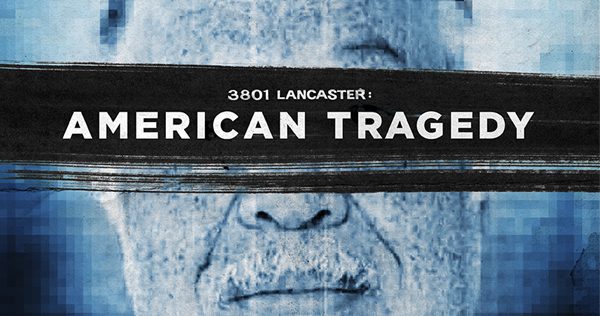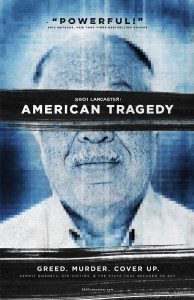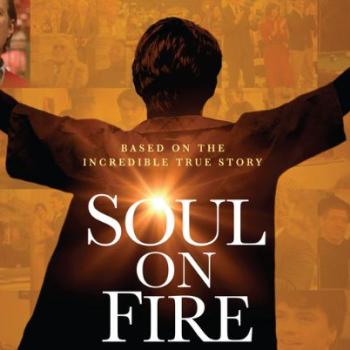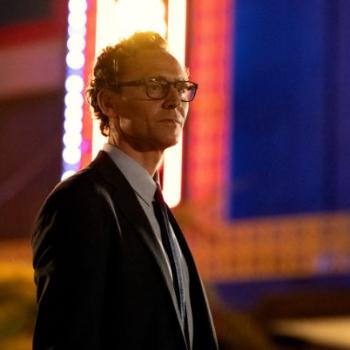3801 Lancaster: American Tragedy is a 57-minute documentary focusing on the crimes of Dr. Kermit Gosnell, an abortion provider in Philadelphia. In February 2010, an FBI raid on his practice uncovered a horrific scene that belonged more to a horror film than a health professional, including blood-stained floors, human remains and body parts.

David Altrogge wrote and produced the film to shed light on a case that many people are most likely not prepared to process. In this exclusive interview with Reel Faith, he speaks about the unimaginable crimes exposed by the raid and the unapologetic doctor at the center of the outrage.
What made you want to cover this case in a documentary?
This film started in early 2011…I was waiting for my coffee to come up at a coffee shop in Pittsburgh (where I live). I grabbed the newspaper and I saw this tiny little article about this case that just broken in Philadelphia. There was this abortion physician named Kermit Gosnell who had recently been accused of running this, what the district attorney described as, a “house of whores.” The article briefly touched on the fact that women had died at this clinic, that babies were born alive and killed at the clinic, and that the Pennsylvania Department of State and Health had turned a blind eye. A couple of days later, a friend of called and informed me that the district attorney in Philadelphia was going to testify before the Pennsylvania State Senate in Harrisburg and they’re going to allow press in. My cinematographer and I got in the car and made the drive to Harrisburg to film this 3-hour hearing. We walked out of there knowing we had to make a film about this case.
I think there are a lot of things about this case that specifically hit me very hard. When they described some of the procedures they practiced and how it was incredibly painful for these babies . . . that affected me. It also affected me that the Department of State and the Department of Health knew about the unsafe procedures being performed and yet nothing was done. They had report after report after report spanning over decades, and yet they chose to do nothing. That is what made me want to make this documentary.
From the idea to the final production, what were some of the findings that most surprised you?
The things that most surprised me was how clear it was that Gosnell could have been stopped years ago. The Department of State and the Department of Health had ample reason to go into Gosnell’s clinic and shut it down…years ago. The Grand Juror report talks about a young woman named Marcella, who worked at Gosnell’s clinic briefly who said she was so horrified by what she saw that she filed a complaint and described the unsanitary conditions. She described that young girls, who did not want to have abortions, were brought in there by their mothers, and Gosnell proceeded with the abortions. This employee of Gosnell described how unsafe it was there, yet they didn’t go into his clinic…not once! It would have taken only one visit for them to see how unsafe it was and it would have been shut down immediately.
Doing the interviews with Gosnell was very surprising. The media had described him as a monster. I had been working on the film for five years before we were able to get in touch with him. I braced myself because I didn’t know what to expect. But I was surprised . . . he was very intelligent. He’s very thoughtful and charming. He has thought through what he has been accused of and come to justifications for why he did what he did. Not that I agree with his justifications at all, but I think it’s very easy to slap the label “monster.” If you listen to him talk and you didn’t know anything about the case, he doesn’t sound very different from a lot of people in our culture today. That is very scary.
I would assume people would be outraged as they watch this film. Do you hope this film will lead to further action by viewers?
My hope for this film is that viewers watch it from both sides of the abortion debate. I hope we wrestle with how did this happen in the state of Pennsylvania. What were the policies and politics that would allow something like this to happen? Secondly, my hope would be that people would have more compassion towards the women who are in unthinkably hard situations to even consider an abortion.

In your conversations with Gosnell, how were you able to gain his trust and also remain unbiased during his justification for his actions?
Gaining his trust took about a year of phone calls, letters, and visits with him in prison. We told him what we told everyone that was involved in the film, we didn’t want to put our own spin on the story, we wanted to let the people involved in the story to tell their story, to speak for themselves as outlined by the juror report and by the people stories and testimonies. So, we wanted Dr. Gosnell to tell his side of the story and he appreciated. It was challenging during the interview and there were times I was frustrated, but you can’t let your feelings get in the way when you are doing a film like this. The journalist job is to present facts. I just wanted to present his take on what happened in his own words.
What has been the reaction to the film?
It strikes a nerve with people. There are some that get angry with us, the filmmakers. I think we all have our opinions about abortion and when a film presents the facts that call into question those opinions, we get angry, but overall it’s been a positive reaction. I think everyone who watches the film is deeply troubled and walks away with their own takeaways.
For more information or to watch the film, click here.













